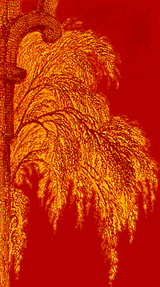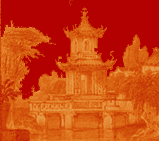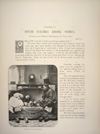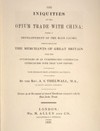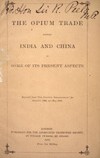
The Europeans were permitted to trade with designated Chinese merchants at Canton (Guangzhou) only, and then under a strict system which was managed at arm's length by the Chinese administration and which was much resented by Western traders. The flow of trade goods throughout the 18th century was very much in favour of China: the main trade goods leaving China being tea (the dominant commodity), silks, and cotton cloth, with porcelain becoming increasingly important from the mid-18th century onwards.
During the 19th century, the trade imbalance decreased, as tea was grown commercially in India and Indian commodities were imported into China, including opium. The Chinese authorities made its importation illegal in 1800 until, under duress, they were forced to legalize it in 1858. The smuggling of opium caused the first outright military confrontation between Britain and China: the 1839-42 ‘Opium War', as a result of which major trading concessions were extracted from the Chinese authorities. This was merely the first military confrontation between Britain and China in the 19th century, and other trading nations also used aggressive military tactics to extract concessions from the Chinese.
